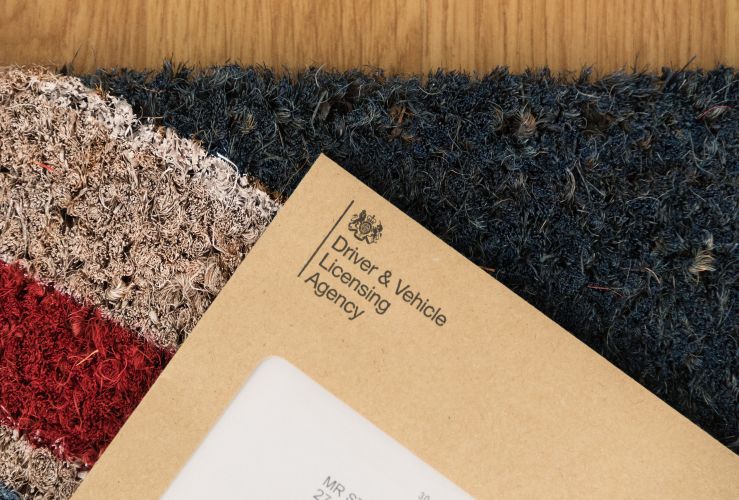Your ability to drive may be negatively impacted by certain medical conditions. If you have any 'notifiable' medical conditions, you must inform the DVLA.
Drivers who fail to tell the DVLA about an applicable condition may be fined up to £1,000 and could be prosecuted if they have an accident related to that condition.
The Gov.uk website has published a list of 'notifiable' conditions that must be reported to the DVLA.
DVLA Notifiable Conditions
DVLA notifiable conditions are anything that could affect your ability to drive safely.
You can check the Gov.uk website to see if your condition is a DVLA 'notifiable' condition.
Can I drive with medical conditions?
Informing the DVLA of a notifiable medical condition does not necessarily mean that you will no longer be allowed to drive.
Once you inform the DVLA of your medical condition, you’ll get a decision by letter as to whether you can continue to drive or not.
Your application may need further information from a healthcare professional, depending on your condition.
DVLA might:
- contact your doctor or consultant
- arrange for you to be examined
- ask you to take a driving assessment, or an eyesight or driving test
Can I continue to drive with my medical condition whilst the DVLA makes a decision?
You can usually keep driving while DVLA are considering your application.
What are the potential outcomes from declaring a notifiable medical condition to the DVLA?
- you may be able to retain your licence or be issued with a new driving licence.
- you may be issued with a driving licence for a period of one, two or three years if the medical adviser decides that a review of your medical fitness is required in the future.
- you may be issued a driving licence which indicates that special controls need to be fitted to the vehicles you drive to allow you to overcome the effects of a physical disability.
- your licence may be revoked or your application refused; DVA will only do this when their enquiries confirm that as a result of your medical condition you are unable to meet the required medical standards of fitness to drive.
If your doctor has told you that you cannot drive for any period of time, you must send your licence to the DVLA.
Under what circumstances would I have to give up my licence?
You would need to give up your licence if:
- your doctor tells you to stop driving for 3 months or more
- your medical condition affects your ability to drive safely and lasts for 3 months or more
- you do not meet the required standards for driving because of your medical condition
Voluntary surrendering of licence
It is a good idea to surrender your licence voluntarily if required due to a medical condition.
If you have your licence revoked/refused for medical reasons, it may take longer before you can drive again - due to the different ways the two scenarios are handled.
Conditions include:
- diabetes or taking insulin
- syncope (fainting)
- heart conditions (including atrial fibrillation and pacemakers)
- sleep apnoea
- epilepsy
- strokes
- glaucoma
The list also includes conditions such as depression and eating disorders.
What if my condition is not listed as a DVLA notifiable medical condition?
If you have a condition that you think might impact your ability to drive, you should contact the DVLA. You can do that here.
How do you reapply for a driving licence revoked due to medical conditions?
You can reapply for your licence when your doctor says you meet the medical standards for driving.
To reapply, fill in a D1 application form and the form for your medical condition, and send them to DVLA. - Select your medical condition to find the right form.
You may need to send evidence of your fitness to drive.
Notifiable medical conditions for car insurance
Along with tax and a valid MOT certificate, it is a legal requirement in the UK to have insurance for your vehicle.
One of the factors that's taken into consideration when calculating your premiums for your car insurance is your health status, as certain medical conditions could impact your ability to drive safely
When arranging your car insurance, it is important to disclose information about any illness or impairment. Failure to do so could result in your car insurance being void or invalid if you are not covered correctly.
A Direct Line report from 2016 suggested there are an estimated 3.4 million motorists in England and Wales who have failed to inform the DVLA about a medical condition. The same report revealed just 64 motorists were convicted of failing to tell the DVLA about applicable medical conditions.
2016 data showed that about 25 per cent of UK drivers - 8.8 million - have a condition that they should notify the DVLA about. Below are listed the most common conditions that the DVLA must be told about.
Medical condition | Percentage of drivers in England and Wales that suffer from it |
Heart conditions | 9% |
Stroke or mini stroke | 8% |
Diabetes | 7% |
Physical disability | 7% |
Brain condition or severe head injury | 5% |




